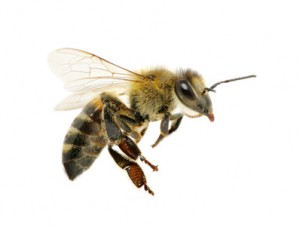

For the most part wasps and bees are beneficial insects and as long as they aren’t building a nest or hive in or around your central Florida home pest control may not be needed. These insects help your flowers, vegetables and trees by assisting with pollination and wasps prey on other harmful insects which can damage your home or your family members. With that said, wasp and bee stings can be painful and dangerous. Up to 100 people die each year due to bee or wasp stings so if the location of a nest or hive is near your home, under your eaves or in a nearby tree it’s a good idea to contact a central Florida pest control professional to remove the hive as soon as possible.
Wasps and bees sting in self-defense or to defend their colony. Each sting injects protein venom which produces pain in the victim along with other reactions which vary from one person to the next. Each bumblebee and wasp can sting a person or animal multiple times without injuring themselves as their stinger is not left in your skin. Honeybees, on the other hand, have a hooked barb on their stinger which is attached to their digestive system. When a honey bee stings you and attempts to fly away its stinger is ripped out along with some pretty important organs and it will die in short order. A common reaction when you get stung by a honey bee is to try to pinch the stinger to pull it out but doing so only guarantees more pain as this will inject the remaining venom into your body. It’s best to remove the stinger by scratching out the stinger with your fingernail as soon as possible so that you don’t depress the attached venom gland. If you spot a nest or hive after you’re stung you should promptly move away and contact a pest control specialist to safely remove these insects immediately.
While most people only suffer localized reactions to bee and wasp stings some people experience more serious localized allergic and non-allergic reactions. Treat these stings with ice, vinegar, honey, meat tenderizer or commercial ointment produced to relieve itching. Minor reactions may include swelling around the sting site, headache, an upset stomach and minor respiratory symptoms and you may experience hives or a rash. If your loved one suffers more severe symptoms (difficulty breathing, fainting, swelling or a blockage of the throat) within minutes of a sting (or stings) seek medical attention immediately.
While wasps and bees prefer to make their homes in quiet areas, urbanization has produced conditions where these beneficial insects and humans build their central Florida homes in close proximity to one another. If you spot a wasp nest or bee hive on or near your house or living space you should immediately call a trained central Florida pest control professional to safely remove these dangerous insects.
